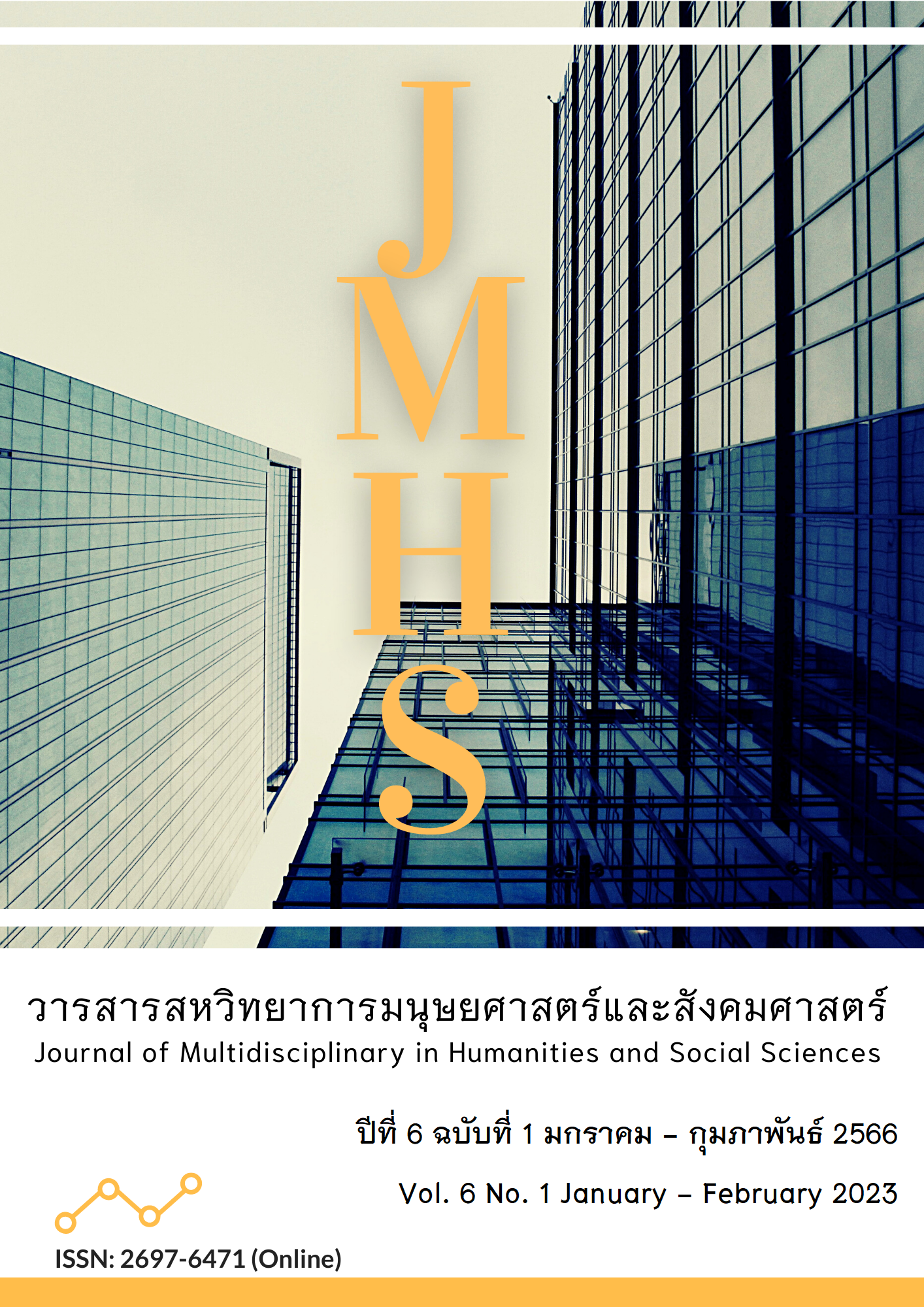Potential Development to Resource and Cultural Capitals for Enhancing the Quality of Life based on Citizen Participation
Main Article Content
Abstract
The objectives of this study are 1) to explore the potential of resource capital and cultural capital. 2) to develop capital, resource and cultural capital with participation 3) to propose a model for the development of potential, resource capital and cultural capital. In enhancing the quality-of-life sample group and key informants are people in the community traders and manufacturers and a group of 30 local wisdom teachers using Action Research Methodology by participatory research. And action research blend together. The research results revealed that: Development model for resource capital and cultural capital in enhancing the quality of life, it was found that the transition through the foundational economy was transformed by changing the path of product/community service development with a new value chain. Through the cooperation of all sectors for the harmonization and allocation of mutual benefits under the principles of good governance to develop quality people and let people build things to create a career and generate income for the community further by dividing the main goal of driving the foundation economy is 1) Creating product/service development. Through the process of creating and developing people with potential and quality first and lead them to create and develop different products/services 2) Building a network of mutual benefits by creating work processes benefit allocation model and defining roles, functions and working processes of the network group; and 3) transcribing knowledge and information from the correct work processes. By creating data create intellectual costs and model integration. From the process of creating people to allow people to create things This will generate useful information and assist in decision making of all sectors that will lead to sustainable development.
Article Details

This work is licensed under a Creative Commons Attribution-NonCommercial-NoDerivatives 4.0 International License.
Views and opinions appearing in the Journal it is the responsibility of the author of the article, and does not constitute the view and responsibility of the editorial team.
References
Buntham, P. (2011). Strength of Tai Krang Native Weaving Community Enterprise in Ban Na Ta Pho according to Sufficiency Economy Principle. Bangkok: Kasetsart University.
Chandaeng, W. (2013). Development of a strong community management model according to the sufficiency economy philosophy in the upper central provinces. (Research report). Valaya Alongkorn Rajabhat University.
Chantavanich, S. (1997). Qualitative research methods. Bangkok: Chulalongkorn University.
Chirinang, P., Fuangchan, S., Raktham, A., & Nilnopkoon, N. (2020). Guidelines to Human Resource Management for Generation X of Community Enterprise Agricultural Housewife Group. Local Administration Journal, 13(4), 363–378.
Hiranpruek, J. (2002). Cultural Dimensions in Sustainable Development: Sufficiency Economy Era. Phitsanulok: Naresuan University.
Inthachim, C. (2020). A Strong Community Management in Line with Sufficiency Economy Philosophy: Case Study at Sufficient Economy Philosophy Learning Center, Bangpla Subdistrict, Bangphli District, Samutprakarn Province. Journal of Administrative and Management Innovation, 8(3), 116-127.
Maharutsakul, P., Phumturian, S., & Nitiphuvanon, N. (2021). The Development Format Underlying Community Sufficiency Economy Model “Happiness Community” in Nakhonsawan Province. Journal of Social Science and Buddhistic Anthropology, 6(4), 307-323.
Ministry of Agriculture and Cooperatives. (2017). Handout in Theoretical Agricultural Development Project. Bangkok: Department of Agricultural Extension.
Phokanit, K., Sanpugdi, V., & Kanaphoom, S. (2019). The Effects of using the Sufficiency Economy Philosophy in the Management of Organic Agricultural Community Enterprise, Chaiyaphum Province. Journal of Graduate MCU KhonKaen Campus, 6(4), 458-474.
Phuangsaijai, U. (2002). Social capital affecting the strength of community organizations. Chiang Mai: Chiang Mai University.
Yenpiam, K. et al. (2012). Human capital development of community enterprises in sufficiency economy estates, land reform areas. (Research report). Suan Dusit University.


